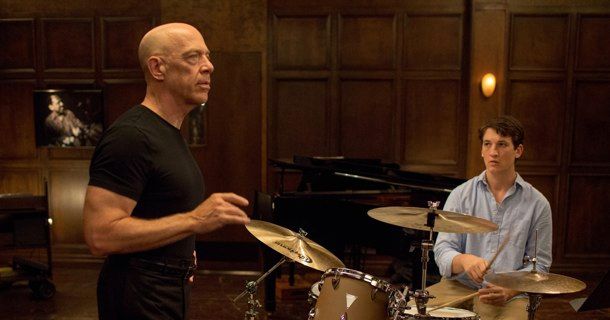
That Final Scene in Whiplash Breaking Down One of Cinemas Greatest Endings
That Final Scene in Whiplash: Breaking Down One of Cinema's Greatest Endings
Damien Chazelle’s film Whiplash delivers a gripping narrative about ambition, sacrifice, and the relentless pursuit of excellence in the world of jazz music. The film's climax, culminating in an electrifying final performance, resonates deeply with audiences and leaves a lasting impression. As we dissect this iconic ending, we uncover the intricate layers of meaning that Chazelle weaves into this masterful tale, shining a light on the sacrifices made for greatness and the complex relationship between teacher and student.
The Build-Up to the Climax
The final scene follows Andrew Neiman, a young jazz drummer played by Miles Teller, as he seeks the approval of his tyrannical instructor, Terence Fletcher, portrayed brilliantly by J.K. Simmons. Throughout the film, Andrew's journey is marked by intense rehearsals, physical and emotional challenges, and a fierce desire to prove himself. The pressure builds as Andrew is faced with not only the expectations set by Fletcher but also his own internal drive to succeed. This perfect storm of tension culminates in a jaw-dropping finale that is both exhilarating and cathartic.
The Duet of Tension and Release
As the final performance unfolds, the audience is treated to an emotional rollercoaster. The palpable tension in the air serves to amplify Andrew's internal struggles. With each beat, every crash of the cymbals, and the relentless pace of the piece, the audience is reminded of what he has sacrificed in his quest for excellence. Chazelle expertly uses editing and cinematography to enhance the viewer's experience; quick cuts between Andrew's expressions and Fletcher's menacing gaze create a dialogue that speaks volumes. This final showdown brilliantly encapsulates the battle between a mentor’s brutal pursuit of perfection and a student's unwavering determination to rise above it.
The Symbolism of the Ending
The film's ending isn't just about Andrew's triumphant performance; it also reflects his metamorphosis as a musician and individual. As he plays the "Caravan," a piece that demands not just technical skill but also deep emotional involvement, Andrew fully embraces his identity as an artist. The climactic moment symbolizes that he has transcended Fletcher's manipulative influence and has found his own voice. Moreover, this duality of identity raises essential questions about the cost of success and the nature of true genius. Are the relationships we sacrifice worth the accolades we seek?
The Whiplash store: A Celebration of Passion
The impact of Whiplash extends beyond the film itself. Fans of the movie often seek to celebrate their love for jazz and the film's themes at various venues and stores dedicated to music. One such place is “Whiplash Store,” where enthusiasts can find everything from memorabilia to music sheets, allowing them to immerse themselves deeper into the world of the film and jazz itself. The store serves not only as a tribute to the movie but also as a platform for like-minded individuals to gather, fostering a community of passion for jazz music, much like the camaraderie and competition depicted in the film.
In conclusion, the final scene of Whiplash is a masterclass in storytelling and emotion, encapsulating the struggles and triumphs of an artist's journey. It challenges us to think about our own aspirations, the sacrifices we make for them, and the intricate dance between ambition and personal fulfillment. The film's legacy, bolstered by unique experiences like those provided by the Whiplash Store, continues to inspire aspiring musicians and filmmakers, proving that the pursuit of excellence is a story worth telling.









